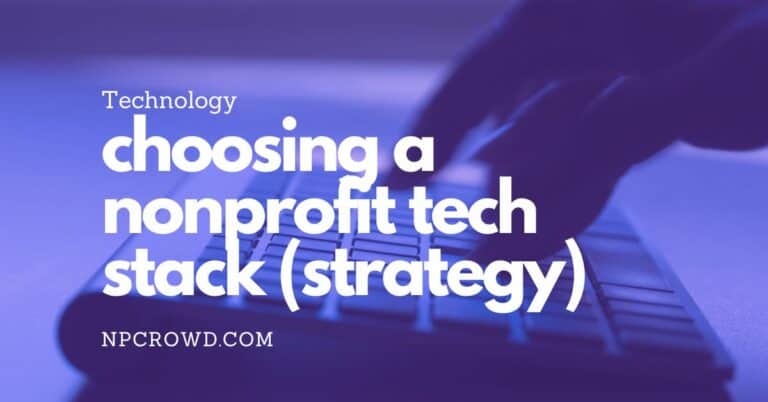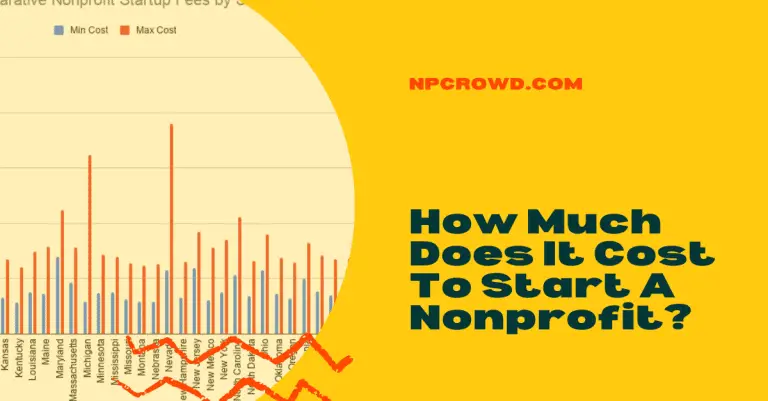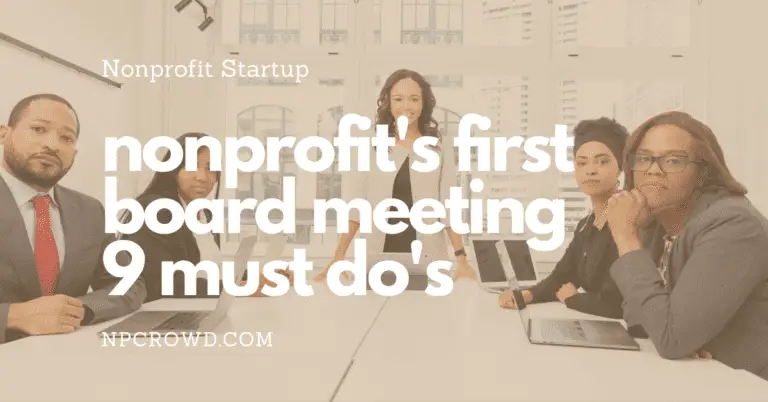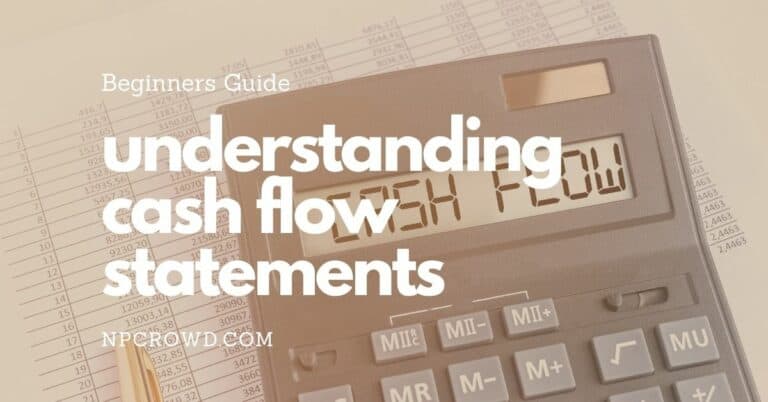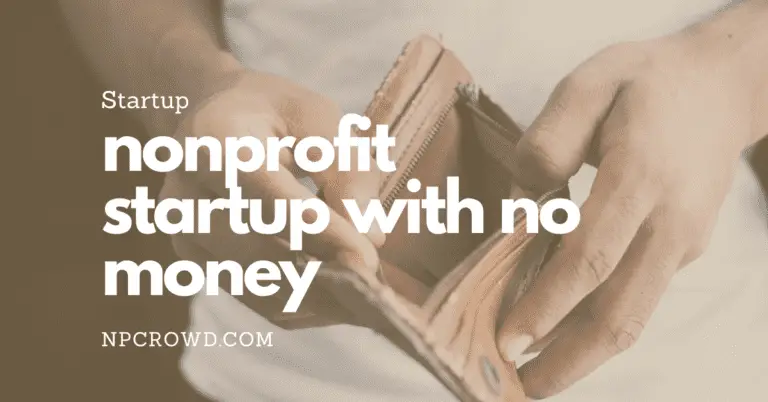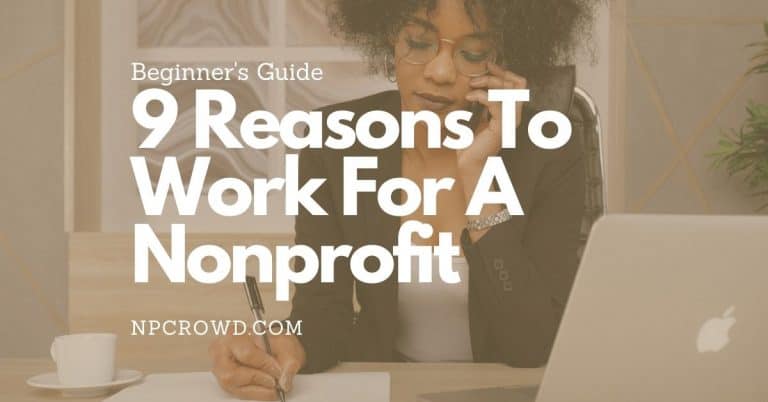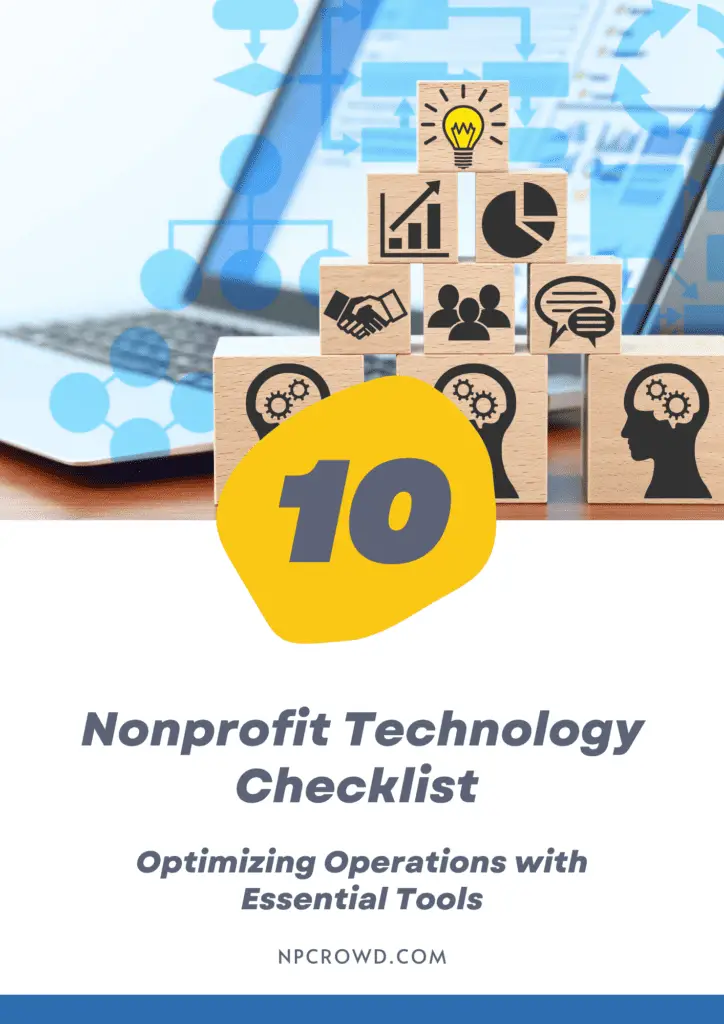Nonprofit Insurance 101 – What Insurance Does A Nonprofit Need?
Disclaimer: This post may contain affiliate links. These links, if used and purchases made, we may earn a small commission. These affiliate programs do not impact the recommendations we make or the resources we refer you to. Our focus is on providing you the best resources for your nonprofit journey.
Insurance for nonprofits can feel complicated and overwhelming. We break down the basics into bite-size chunks to give you insurance coverage terms that will help you talk to your agent or shop around for the best deal.So, what types of insurance do nonprofits need? In general, Nonprofits are recommended to have general liability (premise), commercial automobile (non-owned/hired), and directors and officers (D&O) liability coverages. Depending on the programs and services provided, additional coverages may be necessary, including property insurance, fidelity insurance, social services / professional, accident, sexual misconduct, workers’ compensation, and cyber liability.
There is more to picking the right insurance types than you might think. Let’s look at these, so you have all the needed insurance coverage before it’s needed.
Insurance Types All Nonprofits Need
Starting a nonprofit is exciting. Nonprofits are founded on the premise of making a positive impact, typically in a social issue area. That really means that nonprofits most often are formed to do good.
Even the best intentions need to ensure adequate insurance coverages when something does go wrong.
No matter what programs or services your nonprofit provides, you will want to have these coverages.
- General Liability (Premise)
- Commercial Automobile (non-owned/hired)
- Directors and Officers Liability
These three types of insurance cover the majority of your needs. Depending on the type of nonprofit and the programs, services, and events you have, other insurance types may be necessary
| Insurance Type | Purpose |
| General Liability (Premise) | Recommended: Guest/visitor Injury and property coverage for any location you are performing official work/events/services |
| Volunteer Liability | If excluded in General liability, covers volunteers in case of injury/property. |
| General Liability (Product) | If you sell products to the public, you’ll need this. |
| Commercial Automobile | If your nonprofit owns/operates vehicles, you’ll want this. |
| Automobile Non-owned / Hired | Recommended: Covers liability from personal vehicles and hired/rental vehicles |
| Directors and Officers Liability | Recommended: Covers directors and officers (board members) regarding financial mismanagement. Coverage varies. |
| Professional Liability | Any professional services like counseling, coaching, mentoring, therapies, educational services, healthcare, etc… need professional liability insurance. |
| Sexual Misconduct | Claims against an employee, volunteer, or contractor regarding sexual abuse and molestation. |
| Cyber Liability | Covers expenses associated with data breaches. |
Explanation of Liability Insurance Types
General Liability – Premise Liability
General liability insurance covers visitor or guest injuries and property damage while on your organization’s property, at event locations, leased properties, rentals, and program locations.
Be sure to evaluate the general liability coverage as it may or may not cover volunteers. If not, ask about a specific volunteer accident policy.
General Liability – Product Liability
In this case, we are talking about another general liability insurance type, but this one is specific to products. Typically this is needed if your nonprofit sells products to the public.
You might think you don’t need this type of insurance. Let’s say you are having a bake sale. Someone purchases a cookie that is not supposed to have nuts in it, but it was made in the same equipment that the batch of peanut butter cookies was made. The customer has an adverse reaction due to a peanut allergy. Now what?
Automobile Liability – Commercial, Non-Owned, Hired
Commercial Automobile insurance comes in three types, owned vehicles, non-owned vehicles, and hired transportation. This liability insurance should include personal injury protection (PIP) and uninsured/underinsured motorist (UM/UIM) coverage. Check state law to know what is required.
If your nonprofit owns vehicles, you will want all three coverages.
If you and your volunteers and staff use their personal vehicles, you will want to ensure you have non-owned and hired coverage.
Note: In cases where an employee or volunteer is coming from personal time to a location to work, any accidents in a personal vehicle may fall to their personal automobile insurance. On the other hand, if the person is traveling from one location to another on your nonprofit’s official business, your commercial policy may be the proper first coverage.
Directors & Officers Liability
Another type of insurance all nonprofits should have is Directors and Officers liability. This is also known as “D&O.”
D&O coverage helps cover the resulting legal costs and damages awarded from a lawsuit alleging financial mismanagement and fraud.
Not all D&O policies cover the same things. Some may exclude criminal behavior, lawsuits between board members, or other scenarios.
While D&O covers the Directors and Officers in some situations, it is not a replacement for your general liability coverages.
Professional Liability
Many nonprofits offer types of social or health services. Others may offer legal, tax, or other services.
If your nonprofit is offering professional services, it is important to review the need for professional insurance.
Professional liability coverage is often referred to as “malpractice” or “errors and omissions” insurance. It protects your organization and the professionals you hire or volunteer from claims due to errors (mistakes) and omissions when performing their professional services.
It is a good reminder that general liability insurance does not typically cover you and your organization when an “unprofessional conduct” lawsuit is lost.
Sexual Misconduct Liability
It is unfortunate but a sad reality that this coverage is needed. No matter, it must not be overlooked.
Sexual misconduct insurance helps protect a nonprofit against employees, volunteers, and contractors due to abuse or lack of supervision that results in abuse or molestation.
This abuse or molestation is not limited to children. Nonprofits who work with youth, seniors, or differently-abled individuals should highly consider this coverage.
Having this coverage does not absolve an organization’s responsibility to train and monitor its programs properly.
Cyber Liability
Nonprofits are no less likely to have a data breach, than any other business.
Cyber liability insurance helps to cover the costs associated with data breaches, including fines, identify theft losses, credit monitoring.
This is not just about your website getting hacked. A data breach could be due to personal information stored on a stolen laptop or downloaded donor information from your CRM because someone wrote their username and password on a sticky note.
The personally identifiable or health information you have is a big responsibility.
Do I have to get a single package from one company?
No, you don’t.
There are monoline policies and package policies.
A monoline policy is a single policy for a single type of coverage from a single company. For example, workers’ compensation policies are often written as a monoline, single coverage from a specific company.
A package policy contains two or more lines of insurance coverage. An example of this may be a package policy that includes general liability, volunteer liability, automobile, and property into one “packaged” policy.
You can use any combination of monoline and package policies to get all of the insurance coverage your nonprofit needs.
Most Common Nonprofit Insurance Claims
According to Pamela Davis, president and CEO of the Nonprofits Insurance Alliance Group, 90% of claims against nonprofits are from “accidents and injuries related to automobiles or slips, trips and falls at nonprofit locations and special events.” These claims account for about 65% of the dollars paid out in claims.
The other 10% of claims result from potential misconduct, including improper employment practices, professional error and omissions, and sexual abuse/molestation. These types of claims are responsible for the remaining 35% of dollars paid out in claims.
Related Questions
Are there other insurance coverages I need? Quite possibly, yes. We always recommend working with an insurance agent or broker you trust and understand all that your nonprofit does. Other coverages that may be of interest include:
- Property Insurance – Insuring the loss of contents from your facilities. Theft.
- Flood Insurance – Depending on your state and location, you may need a separate flood insurance policy to cover and flood-related damages.
- Crime/Fidelity Insurance – Employee theft, forgery, and robbery types of coverages. Some grants may require this coverage.
- Workers Compensation – If you have employees, check with the federal and state insurance requirements. You likely need workers’ compensation and disability insurance.
Running a nonprofit out of your home? Many homeowners’ and renters’ policies exclude business-related claims. Some policies actually forbid any business use of your home or rental property. Check with your agent and see if you need to make any changes to your policies, coverages, or insurance company.
*Disclaimer: We are not offering legal, risk, insurance, or other advice. This article’s contents and this website are our personal opinions and in no way should be considered professional advice or recommendations. You should always consult with a licensed professional on such matters.

